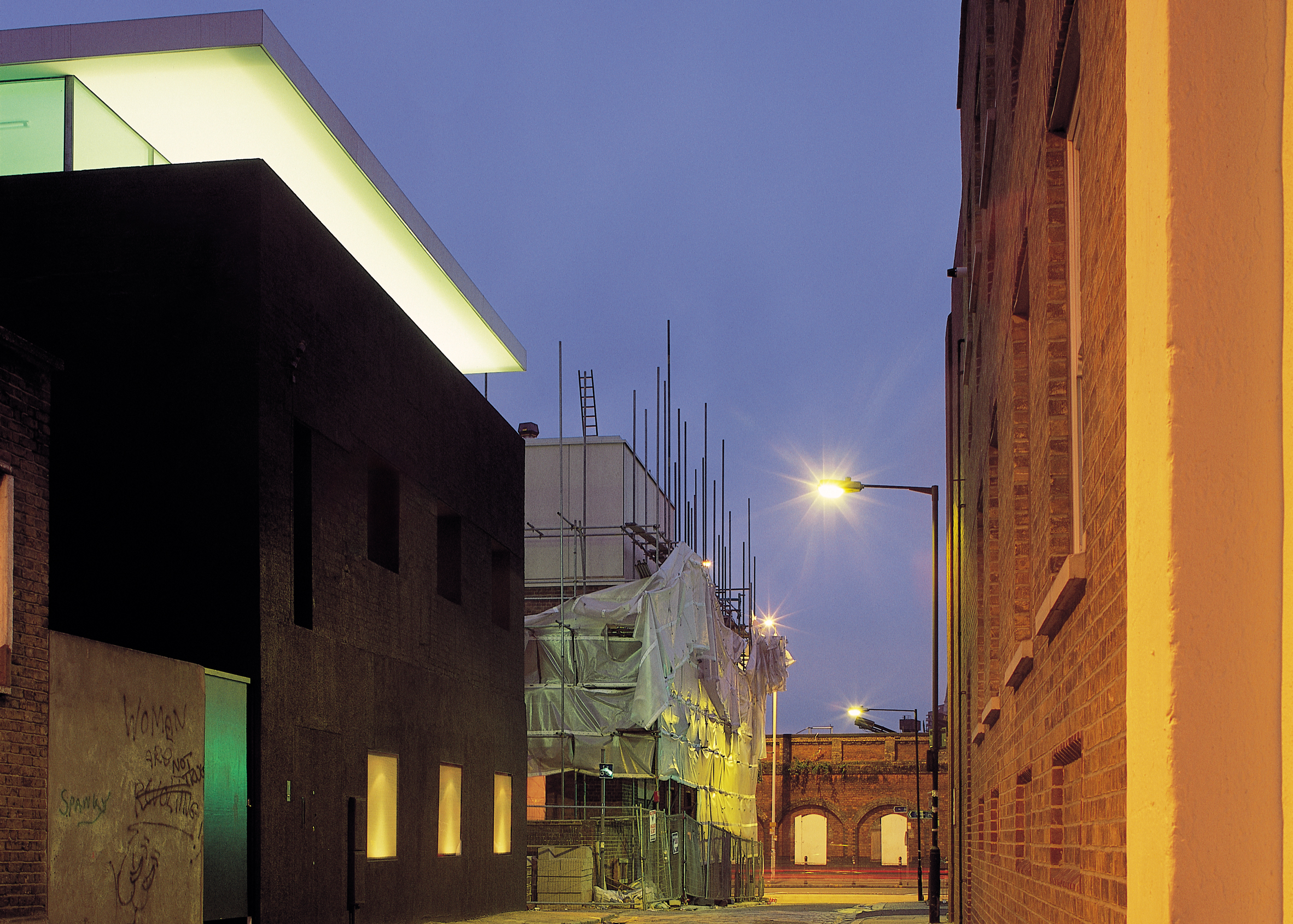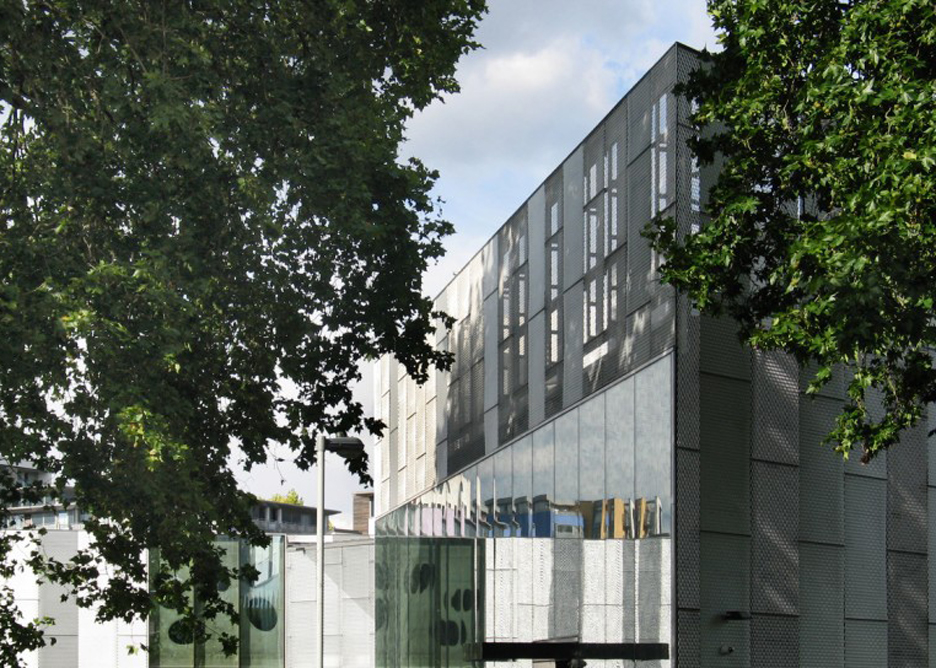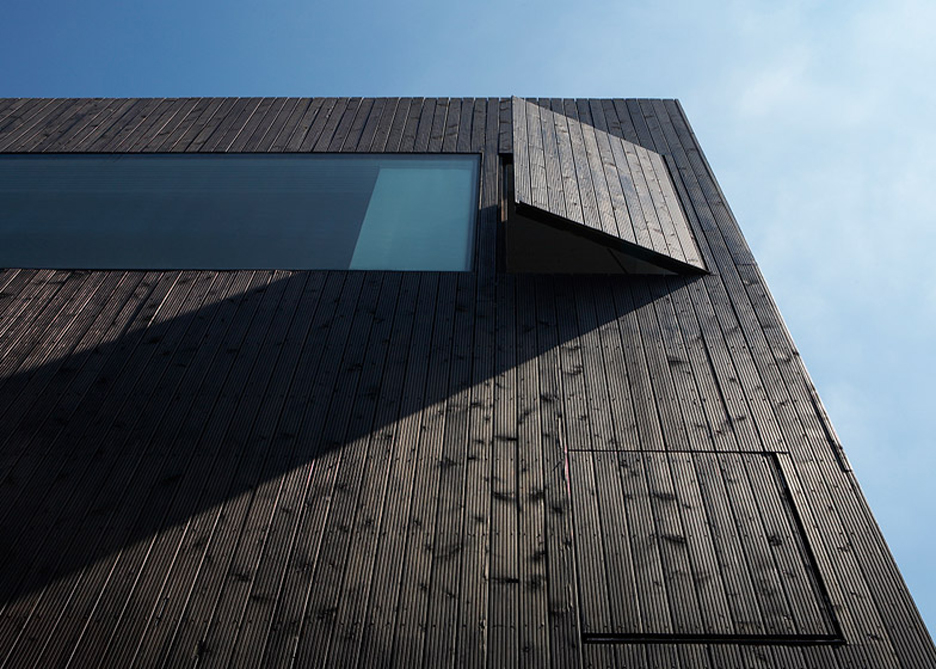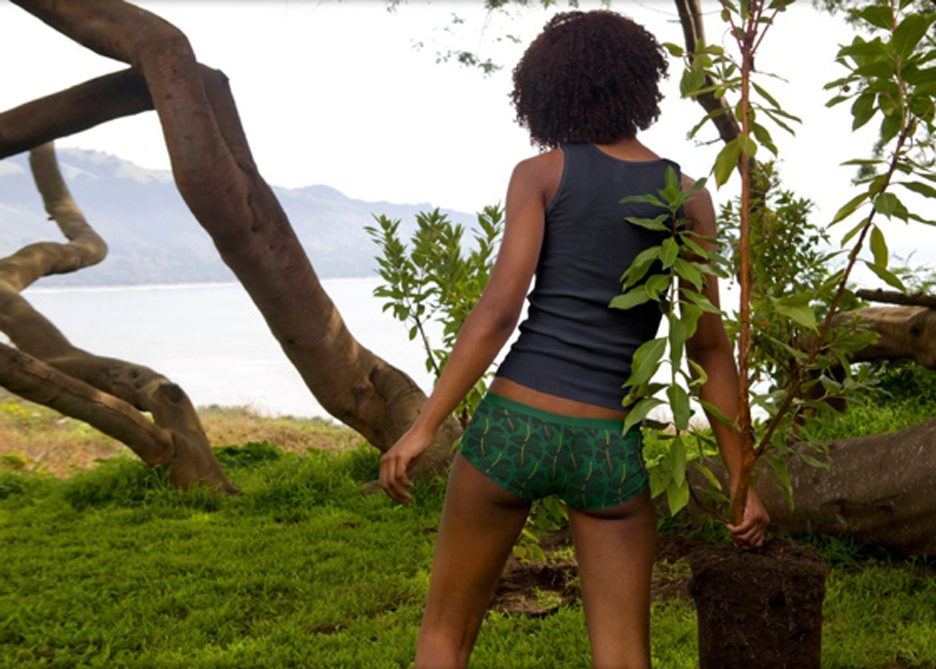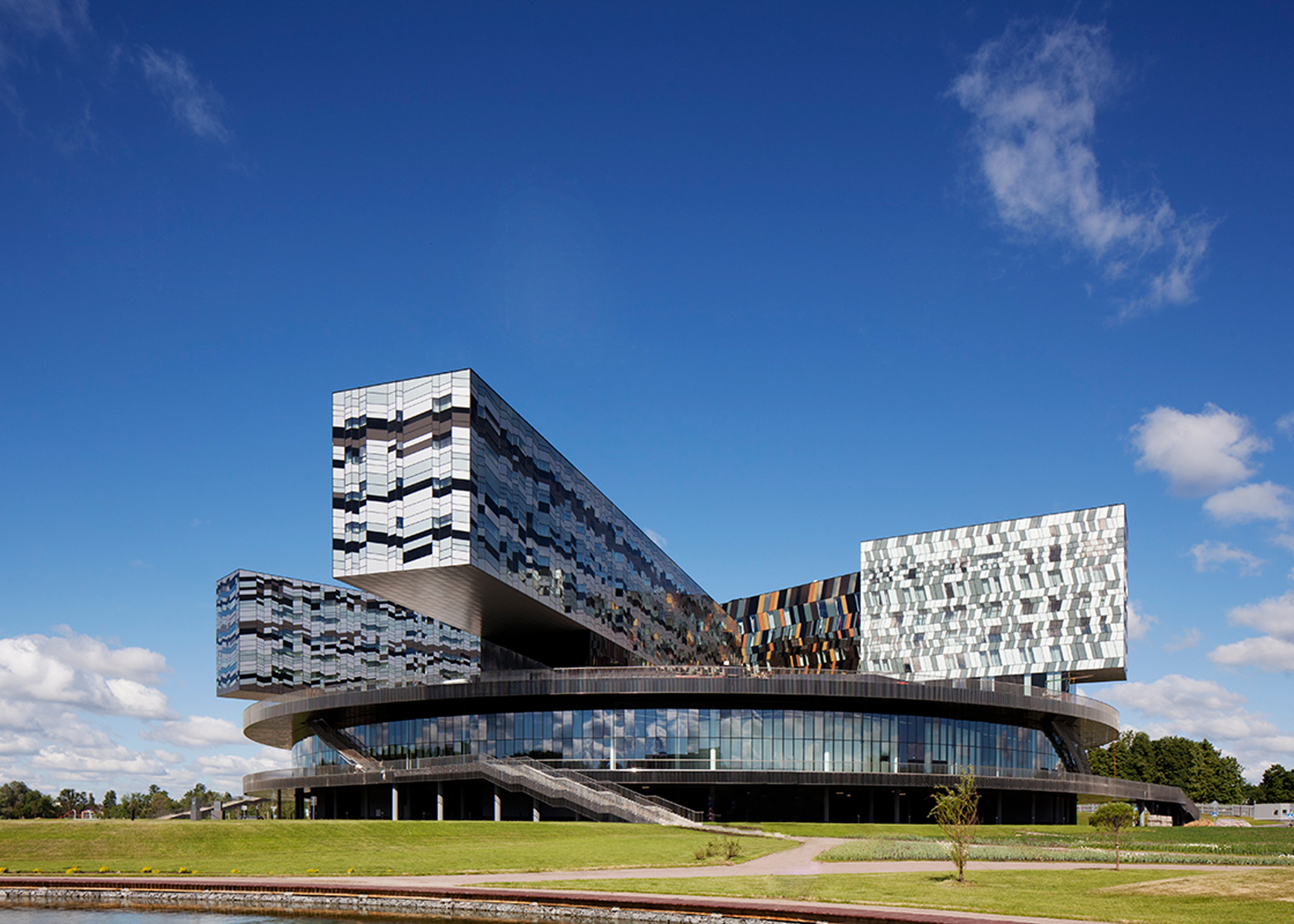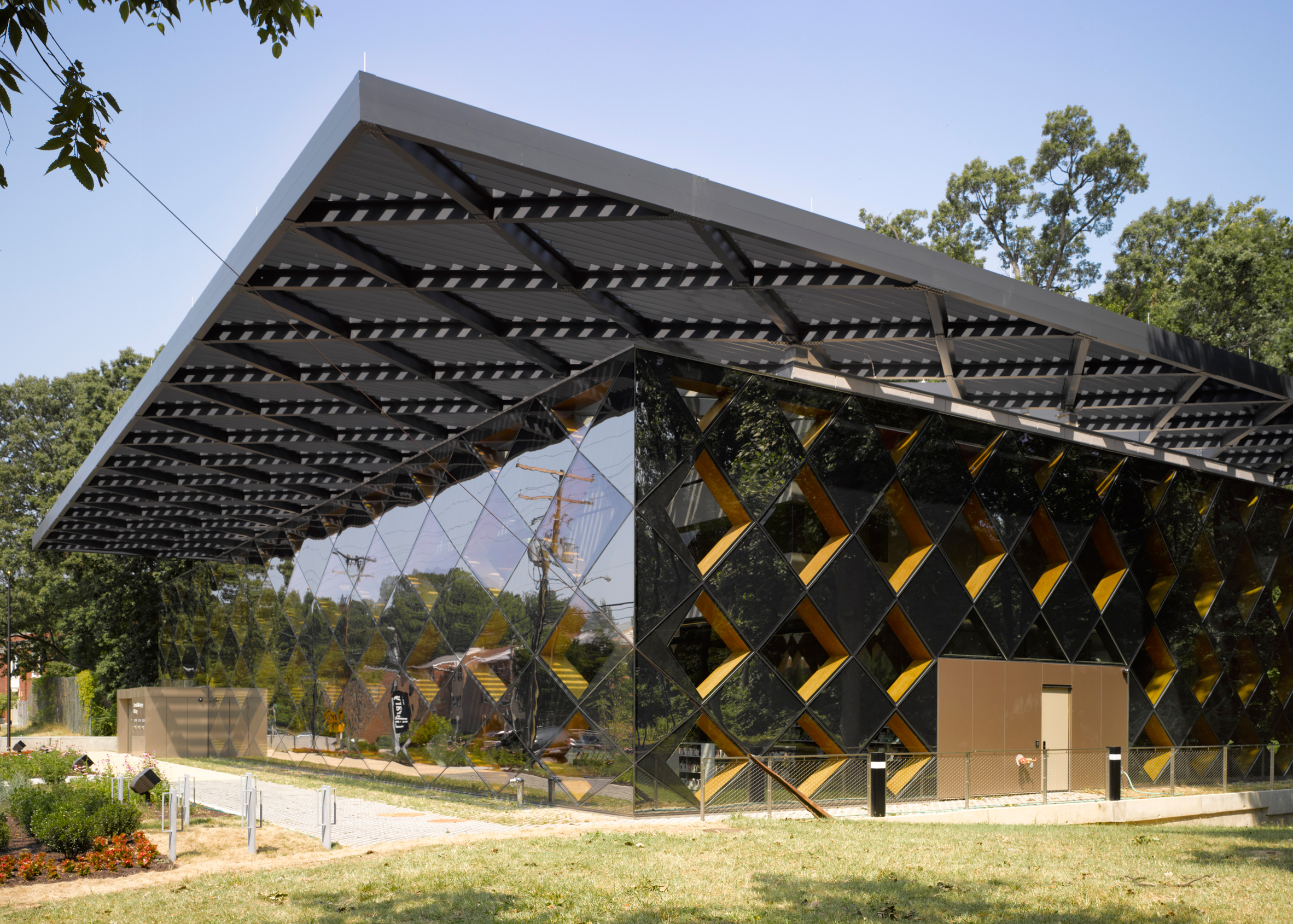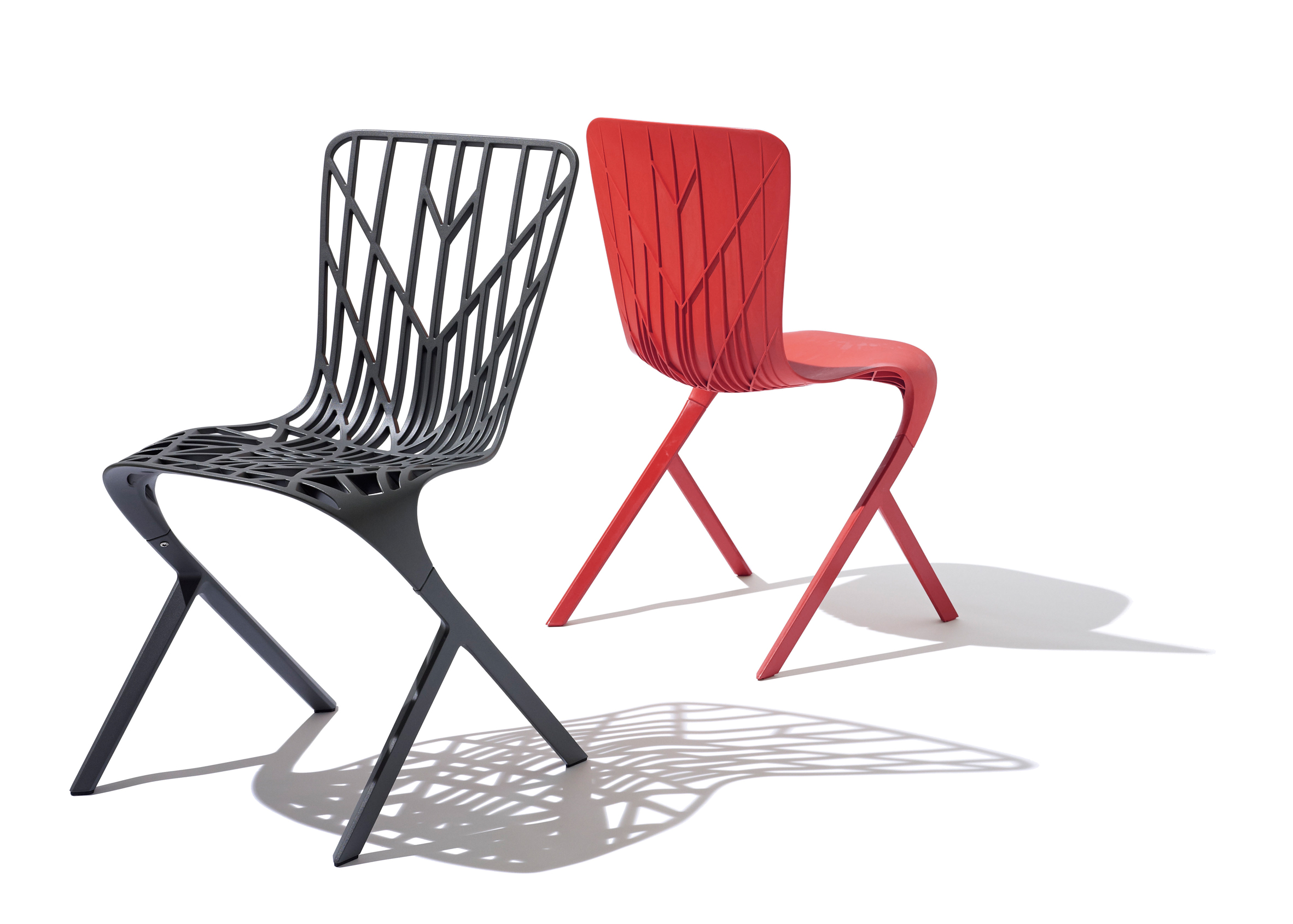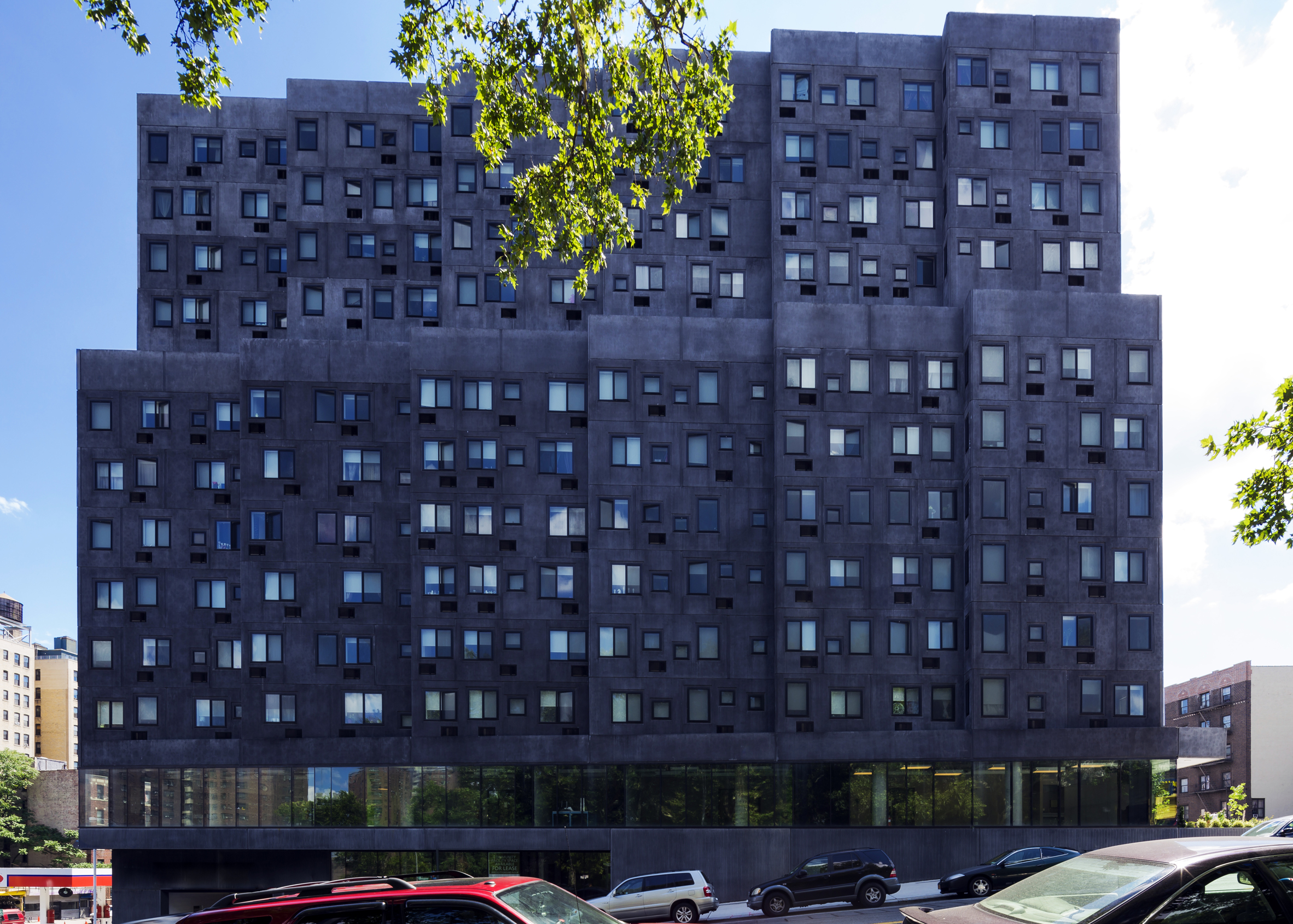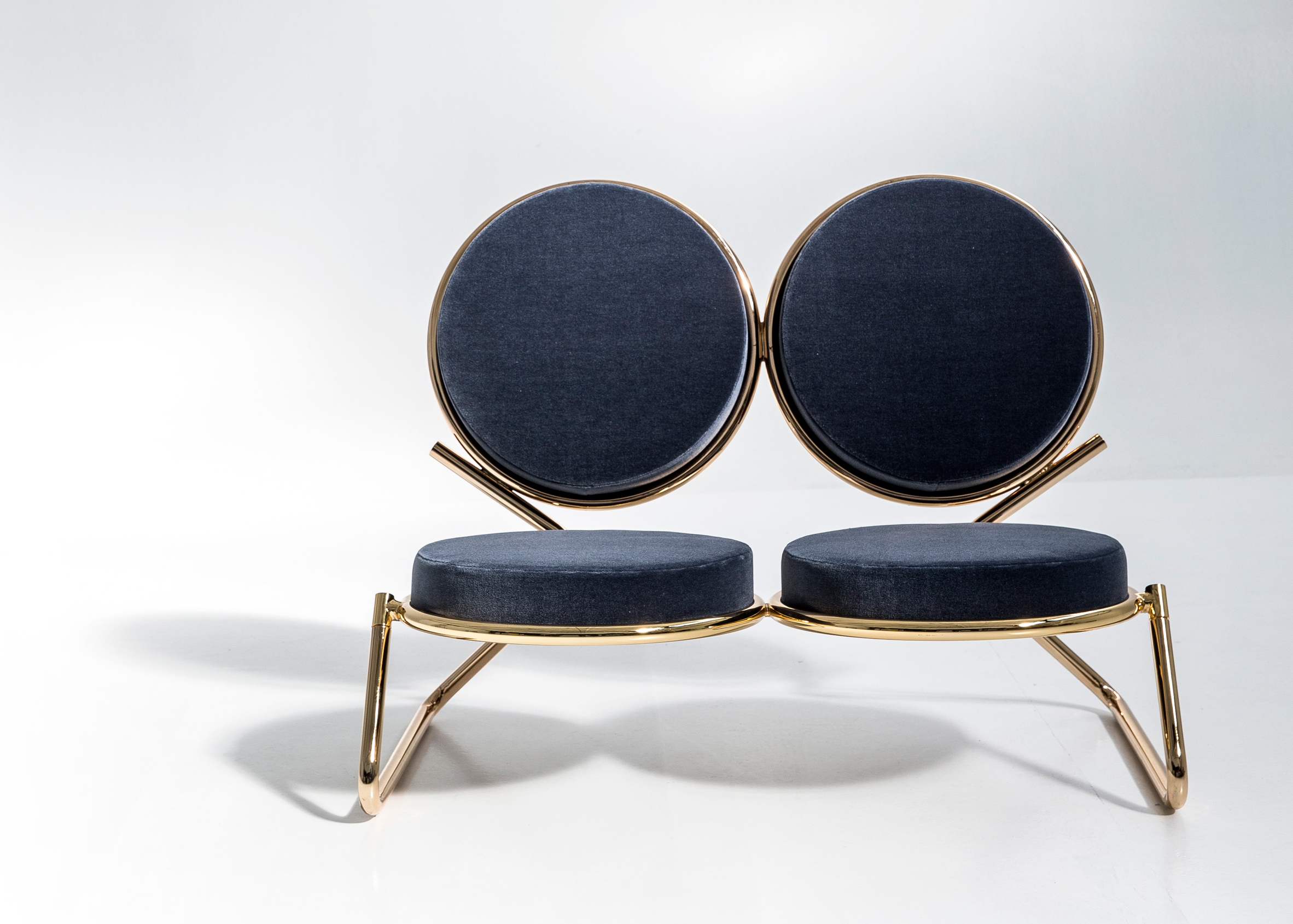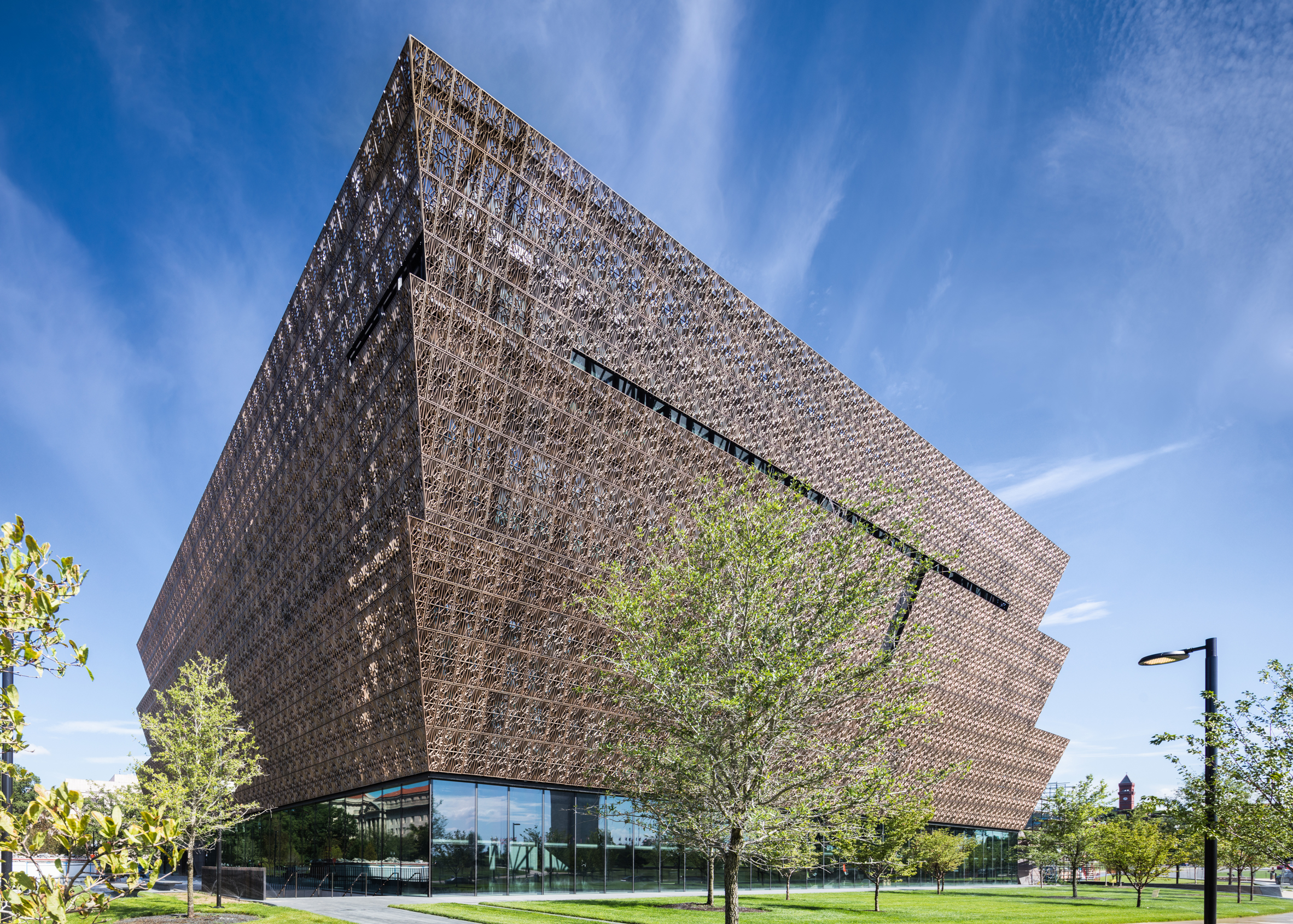With the news that David Adjaye has won the 2016 London Design Medal, we've rounded up some of the British architect's most memorable designs, from his long-awaited Washington museum to a range of sustainable underwear (+ slideshow).
Dirty House, London, 2002
As one of the projects that made Adjaye's name, Dirty House is a converted warehouse in Shoreditch with black-painted walls and a brightly illuminated roof.
Now an art studio and apartment building, the building's sealed-up windows were replaced with mirrored glass to ensure privacy for its occupants. Find out more about Dirty House »
Stephen Lawrence Centre, London, 2007
Adjaye designed the Stephen Lawrence Centre in the memory of a black teenager that had aspired to become an architect, but who was tragically murdered in a racially motivated attack.
Featuring a metal-mesh exterior and a plan inspired by a Chris Ofili drawing, the centre is dedicated to improving opportunities for young black people in south London. Find out more about the Stephen Lawrence Centre »
Sunken House, London, 2007
Designed to look like a giant cube, this house in London's De Beauvoir Town was designed by Adjaye for architectural photographer Ed Reeve.
The name Sunken House refers to the way the building is partially submerged into the ground to create a secluded terrace. Other features include wooden walls and window that wraps around a corner. Find out more about Sunken House »
Green Belt underwear for PACT, 2010
The Tanzanian-born architect took some time out from architecture in 2010 to design a collection of sustainable underwear for online clothing retailer PACT, featuring yellow fig leaves against a green backdrop.
The brand partnered with Kenyan organisation Green Belt Movement and pledged to plant 20 trees for each pair sold. Find out more about the Green Belt underwear »
Moscow School of Management Skolkovo, Moscow, 2010
Four buildings balance on top of a large, circular base to form this teaching and research institute on the outskirts of the Russian capital.
All four blocks feature a herringbone-patterned glass exterior, but while three are monochrome, the fourth displays an assortment of vibrant colours. Find out more about Moscow School of Management Skolkovo »
Francis Gregory Library, Washington DC, 2012
In 2012, Adjaye completed two community libraries in Washington DC. The most impressive of these is the chequerboard-patterned Francis Gregory Library in Fort Davis Park.
Organised around a double-height atrium, the building features chunky timber boxes behind its glass skin, creating a row of window seats for library visitors. Find out more about the Francis Gregory Library »
Washington Collection for Knoll, 2013-2015
The architect teamed up with American brand Knoll to launch this collection of furniture.
It includes two cantilevered side chairs, called the Skin and the Skeleton, and the bronze Corona table. Adjaye later expanded the range with a series of faceted seats, stools and side tables. Find out more about the Washington Collection »
Sugar Hill Housing, New York, 2015
Adjaye's Sugar Hill Housing project in New York's Harlem contains affordable housing units, a kindergarten and a small museum.
Its characteristic dark exterior is made up of precast concrete panels that feature an embossed pattern. Find out more about Sugar Hill Housing »
Double Zero for Moroso, 2015
This art-deco-influenced seating range for Moroso takes its name from the circular pads that form the seats and back of each piece.
The upholstered cushions are held within rings of tubular stainless steel, which is also bent to form a supporting frame of sleigh-type legs and optional arms. Find out more about Double Zero »
Smithsonian National Museum of African American History and Culture, Washington DC, 2016
Opening this week, the Smithsonian National Museum of African American History and Culture takes up the last free spot on the Washington Mall.
The three-tiered structure is covered in bronze filigree plates, patterned to reference the history of African American craftsmanship. Find out more about the NMAAAHC »

